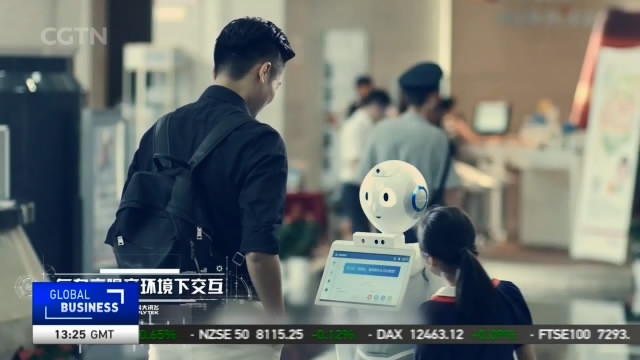
21:40, 19-Feb-2018
New Era, New Journey: China actively exploring AI technology

Artificial intelligence has been a major buzz word in the tech sector in recent years. And China is among those actively exploring the technology. In today's episode of our tech frontier series, we explore how Chinese tech firms are utilizing A-I's cutting-edge advances.
The AI industry is experiencing a period of rapid growth. Many international and domestic companies are making their attempts to grab a share of the fast-growing market.
JIANG TAO, SENIOR VP IFLYTEK "Since being launched, after 7 years of development, iFLYTEK has become the largest open AI platform in the domestic market. Take robotics, a recent hotspot, as an example, there are more than 10,000 robotics developers on our platform. Actually, most of the robots you see today use iFLYTEK voice interaction capabilities."
The AI voice technology developed by iFLYTEK has been used in multiple areas such as smart education, smart healthcare, smart home, smart office, smart transportation and smart media.
LIN BO, MARKETING MANAGER IFLYTEK "it might take an experienced doctor 5 minutes to analyze an X-ray, but now, it takes just 1 second for our AI system to go over 200 X-rays. Therefore, the system can assist the doctor with some fundamental work, therefore, making the decision-making process more efficient and quicker."
The AI industry in China not only made huge progress in voice interaction, but also has outstanding performance in visual technologies., based on the development of related technologies, a large number of smart video editing companies emerged in China.
ZHANG MO, CEO YI + "We focus on the development of AI computer vision engines and provide services for businesses on TB. We are also a smart and commercial solution provider for the media, broadcast and TV industry."
In the future, AI will be more widely used in the visual sector with far-reaching influence on online traffic, viewer and box office value prediction, content examination and approval and public management. As one of the largest e-commerce platforms in China, JD.com launched the first CASHIER-FREE supermarket in the headquarters of JD.com in Daxing District, Beijing. The two AI systems can help businesses to realize targeted marketing, reduce cost and deliver more flexible shopping experience for consumers. Convenience and flexibility, in turn, demands a more efficient supply chain and faster operation, thus driving the development of other industries.
MU GUANGSEN, DIRECTOR JD.COM X CASHIER-FREE SUPERMARKET "In terms of operation cost, the establishment of the cashier-free supermarket only costs about 15% more than conventional convenience stores due to the adoption of smart devices and the cost will be further reduced in our future expansion. That is to say, the cost is acceptable. The cashier-free supermarket has advantage in both efficiency and cost after realizing scaled development, the cost will be significant reduced."

SITEMAP
Copyright © 2018 CGTN. Beijing ICP prepared NO.16065310-3
Copyright © 2018 CGTN. Beijing ICP prepared NO.16065310-3